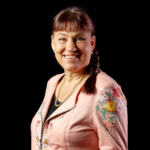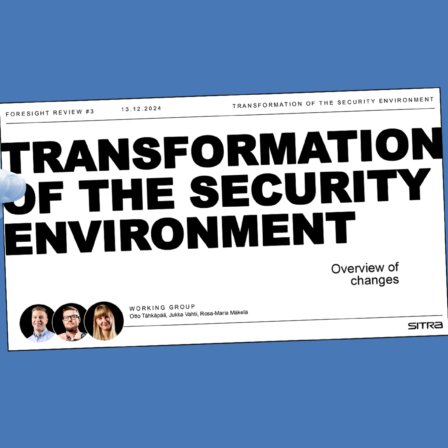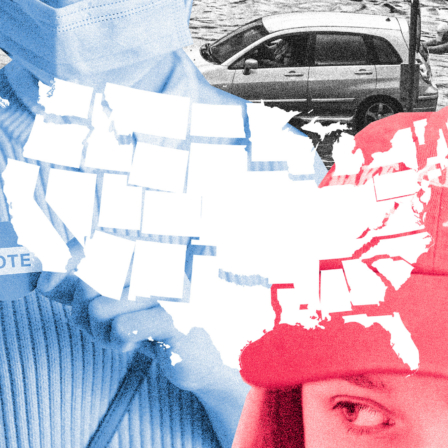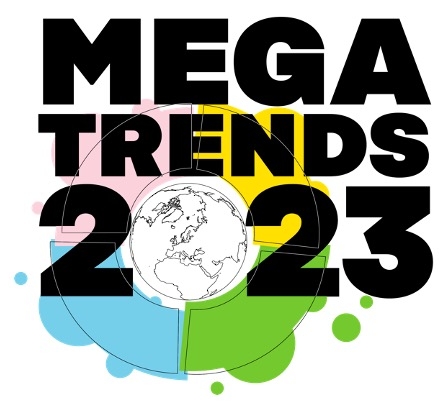Current economic debate in Finland is defined by a narrow group and revolves largely around traditional economic measures and. However, in post-normal times with high levels of uncertainty and complexity, there is a growing need to imagine alternative futures. Because of the volatility of our time, there are no “right or wrong” questions about the future. The value of difficult or even divisive questions is in challenging us to re-evaluate our familiar assumptions about the future. Young people’s perspectives are particularly important when considering what future questions need addressing.
This article summarises the main findings from workshops targeted at higher education students and young experts from different fields of study. The workshops aimed to identify the topics that should be addressed when discussing the future of the economy. The workshops were held in Finland in spring 2022 and organised by Sitra in co-operation with the Helsinki Institute of Sustainability Science (HELSUS) and the Rethinking Economics Finland association.
Young people’s voices could be a valuable addition
Young people in our workshops worried about the current narrow and unimaginative view of the future of the economy. Yet, they found that it is difficult to participate in the discussion with a credible voice. They felt that it is very difficult to even reach a common language when the prevailing economic debate is based on such a fundamentally different world view from the one they have. According to the students, it is also difficult to question the realities of the current system without being stigmatised as daydreamers.
The dominating macroeconomic discourse was also found to be very theoretical or specific, and thus difficult to understand. Without a degree in economics, many students felt as if they did not have “permission” to participate in a discussion dominated by economists.
The economic debate needs democratisation.
Although many students do not have ready answers to many economic questions, the questions they ask about the future of the economy can help to constructively challenge our accustomed assumptions about the future and look for new solutions.
At a time when increasing the resilience of the economy is only possible through multidisciplinary discussion and foresight, can we afford to overlook the potential role of young students and experts interested in the future of the economy in our economic debate?
Opening up new opportunities for discussion
Can we really afford to neglect the power vested in young thinking? What opportunities lie in giving more space for young experts from different disciplines and backgrounds to participate in the debate? The students in our workshops highlighted the following benefits.
The spirit of our time is embraced by uncertainty, change and alternative futures. The ongoing global transformation is remarkable. When many are looking for a change, there is a strong call for new thoughts and voices for a new order. For example, an understanding of the ecological boundary conditions of the economy among the public may provide new space for bold questions and new ideas.
A varied discussion and learning together is a core condition for innovation and societal transformation. Cognitive frames expand by listening particularly to the points of view of parties underrepresented in the discussion. A more diverse discussion expands the possibilities to imagine the future economy differently.
Furthermore, today’s technology makes it possible to discuss the future of the economy in new ways in the media and on new platforms, giving the conversation an opportunity to reach and engage new groups. However, there is then a risk that the conversations of different groups on separate platforms leads to a situation where these different ideas fail to meet. This highlights the need for safe conversation spaces that allow multiple voices to be heard in a constructive manner.
What future questions do we need to address?
The young experts in our workshops frequently reiterated how we live in the middle of multilateral crises and in an interdependent economic system. They felt that the current economic discussion does not sufficiently take account of global linkages, especially from the perspective of the sustainability crisis. They also argued that the economy has traditionally been treated too separately from other areas of society.
The students listed a variety of questions that need to feature more prominently in the societal discourse on the future of the economy.
For answering questions raised by the young, read our tips for broadening the discourse on the future of the economy.

















Recommended
Have some more.